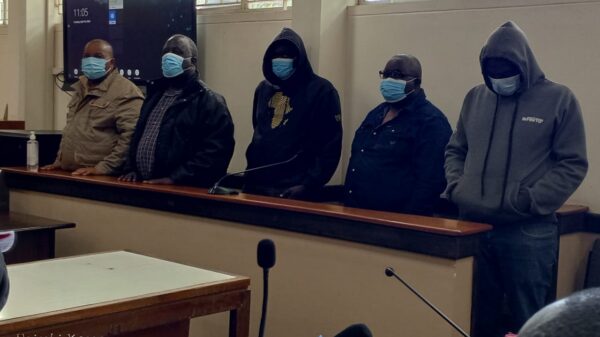LAGOS, Feb 6- Whoever wins Nigeria’s February 14 election will take charge of an economy battered by falling oil prices, leaving the new administration with fewer options to tackle the twin crises of poverty and unemployment, analysts said.
President Goodluck Jonathan’s government has over the last four years sought to paint a picture of Nigeria’s prosperity rising.
While the actual gains have been disputed — some data suggest poverty is on the rise nationwide — Africa’s top economy has averaged roughly seven percent growth over the last decade, despite a brutal insurgency in the north by Boko Haram since 2009.
Jonathan’s economic team has used diversification as a buzzword, insisting it has taken needed steps to ease the country’s reliance on oil, especially by investing in agriculture, a crucial job creating sector.
But with global crude prices falling by half in the last six month, Nigeria — which derives more than 70 percent of government revenue from oil — has again revealed its vulnerability to an oil price shock.
The naira currency and the national stock exchange have both plummeted while dwindling government revenue has squeezed federal and state budgets, with reports of thousands of civil servants not being paid and foreign reserves drying up.
“It’s not going to be fun at all for the incoming administration,” said Sola Oni, an analyst with the Lagos based Sofinux investment.
– Campaign promises –
The campaign between Jonathan and opposition leader Muhammadu Buhari has been light on specific policy proposals, although both candidates have put job creation at the forefront of their messages — and with good reason.
According to official data, more than a quarter of Nigerians are unemployed but the real number may be higher and with roughly half of the country’s 173 million people under 18, the demand for jobs is set to rise dramatically.
In an article published last month, former central bank governor Charles Soludo said that whether Jonathan or Buhari wins “it is likely to be a Pyrrhic victory”.
“None of them will be able to deliver on the fantastic promises being made on the economy and if oil prices remain below $60 (per barrel), I see very difficult months ahead,” he wrote in the Vanguard newspaper.
He said that both the ruling Peoples Democratic Party, which has promised two million new jobs per year, and the opposition All Progressives Congress, pledging 20,000 news jobs in each of Nigeria’s 36 states, needed to spell out their strategies.
“Let us know how you arrived at these figures,” Soludo said, adding that whoever wins should “declare a national emergency on job creation”.
Observers, including Western diplomats, have long argued that crippling unemployment in the mainly Muslim north is partly driving the Boko Haram uprising, as dejected and hopeless youths in the region have become vulnerable to radicalisation.
– Tight budgets –
The naira hit a record low on Thursday, trading at 194 to the US dollar, down from rates ranging between 150-160 earlier this year.
Finance Minister Ngozi Okonjo Iweala, admitting that the country was facing serious challenges, has cut the benchmark oil price used to guide spending, downgraded the 2015 growth forecast and announced belt tightening measures in unproductive areas such as foreign travel for government workers.
She insists that top priorities like infrastructure spending and housing support will not be affected but most experts believe that across the board cuts could become inevitable.
Compounding the problem is Nigeria’s chronic failure to save for a rainy day.
When oil was trading above the government’s benchmark price of $75-$79 per barrel, the extra cash was supposed to be deposited in a savings account.
But corruption watchdogs say that account has been consistently raided and billions of dollars in public money are believed to have gone missing under Jonathan’s watch, especially from the Nigerian National Petroleum Corporation, one of the most opaque state oil firms in the world.
Buhari, an ex-general who took power in a coup in 1983 and led the country for 20 months, has sought to remake himself as a civilian politician committed to democracy and fighting graft.
But even if he wins and his anti-corruption credentials prove legitimate, reversing Nigeria’s current economic plight will not be easy and perhaps impossible if crude prices stay low, experts said.
“We failed to plan before the current plunge in oil prices,” said Muda Yusuf, head of the Lagos Chamber of Commerce and Industry. “The bubble has burst and we are in a big mess.”



































